2021: My Year in Reading
I read 16 books in 2021; here are my favorites, recommendations, and thoughts.
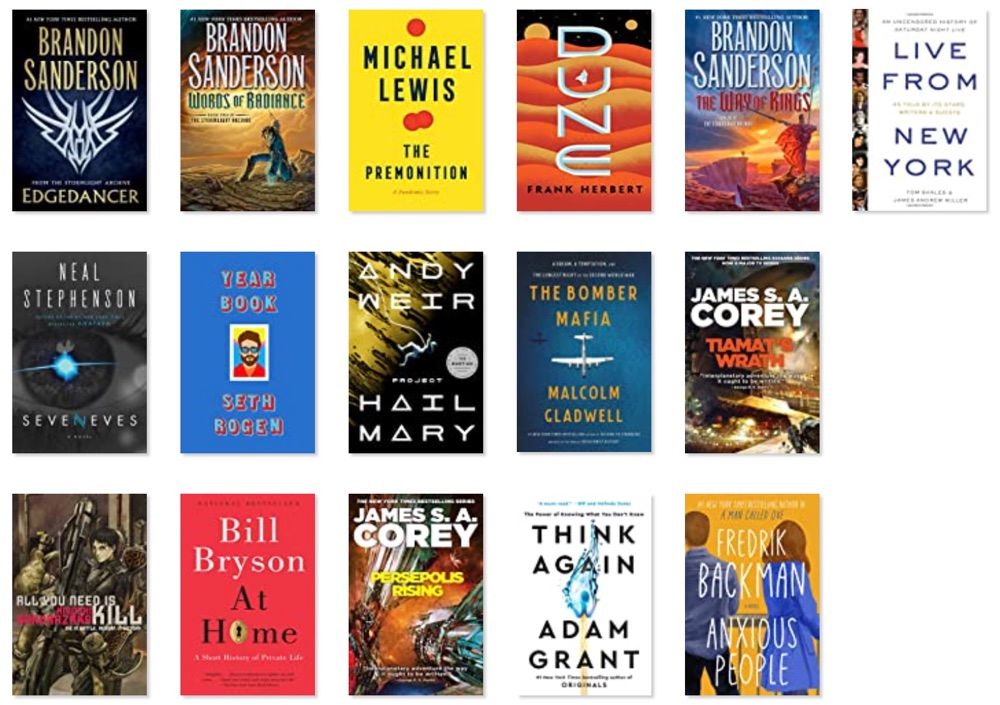
Ah, another year, another adventure in reading!
The Stats
I read 16 books in 2021 (thanks as always to the good folks at Goodreads for the stats). That's fewer than the 19 I read in 2020, but I also read about 200 more pages this year (8,554 in 2021 vs. 8,363 in 2020). So, all-in-all, 2021 was on par with 2020 – I just read longer books.
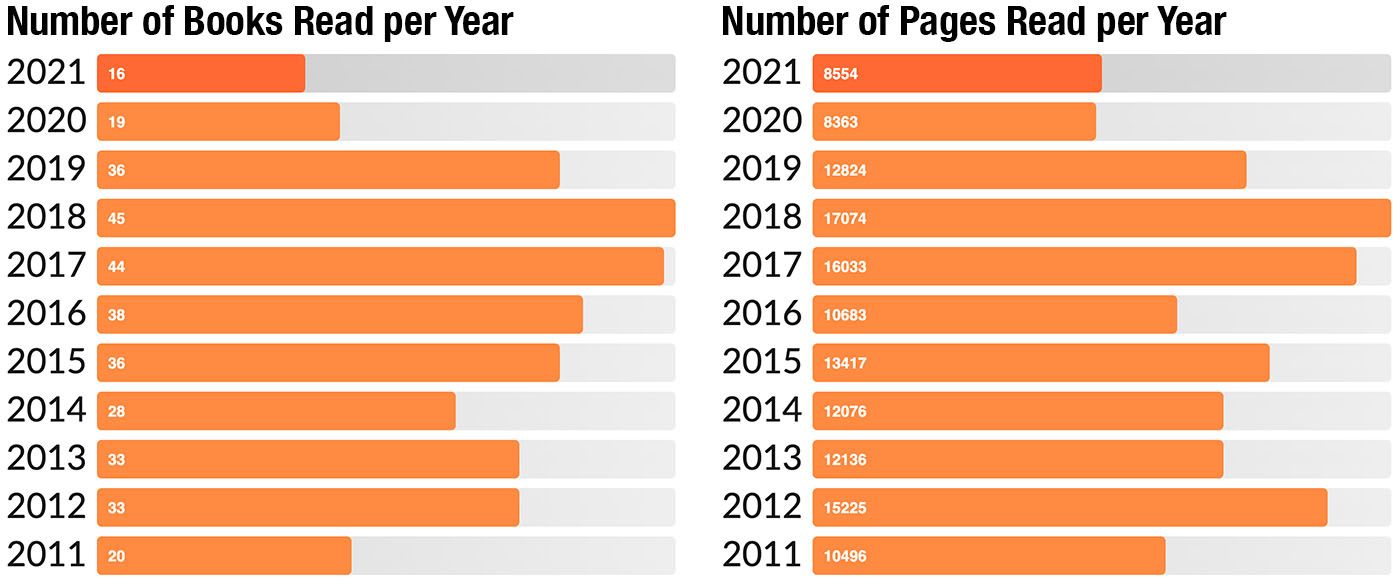
As with 2020, I'm still reading fewer books per year than my ten-year average of 31 books per year, but that's mainly the result of my commute disappearing since I started working from home in March 2020 due to the COVID-19 pandemic. My 1-1.5 hours per day sitting on Seattle city busses weren't my favorite part of the day, but it did serve as prime reading time. Do I miss it though? No, not really.
Here are some of the highlights from my reading journey this year (and I'll do my best not to share any spoilers).
Can't stop, won't stop: The Stormlight Archive
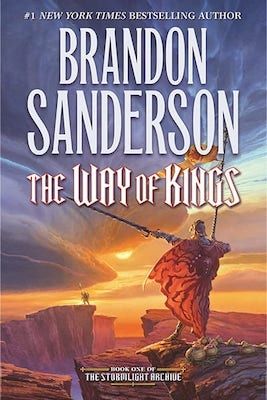
I haven't read a ton of Fantasy as an adult (although as a kid, I devoured The Lord of the Rings, and pretty much anything by David Eddings). But my goodness, I finally decided to check out the much-celebrated Stormlight Archive series by Brandon Sanderson, starting with Book 1: The Way of Kings, and it was absolutely fantastic. The characters are awesome, the magic system (or whatever it's called) is really interesting, and I genuinely looked forward to reading this book every day.
After I finished Book 1, I immediately proceeded to Book 2: Words of Radiance, and then I read the novella Book 2.5: Edgedancer before jumping into Book 3: Oathbringer.
That being said, the books in this series are huge (Book 1 and 2 both clock in over 1,000 pages each), and I do feel like they could have been shortened a bit without losing anything consequential, but it's not like it stopped me from reading these books every day.
From what I learned from the author's afterword, this series is something he was working on for a very long time. The third book, for example, took him years to write, and it really shows – there's excellent cohesion between the books, the lore all ties together well, and it feels like he knows where he's going with the story rather than making it up along the way.
I'm super glad I finally checked out this series and I'll probably read more of Sanderson's extensive bibliography afterwards (but maybe I'll take a little break on the Fantasy for a while first).
Learned the most
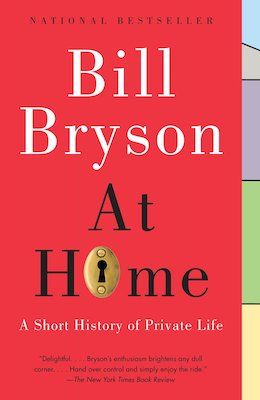
At Home: A Short History of Private Life by Bill Bryson was an absolute joy to read, and I eagerly read this book every night. I picked this one up because of how much I enjoyed his other books like A Short History of Nearly Everything and The Body: A Guide for Occupants. Bill Bryson has such wonderful curiosity, often favoring breadth for depth, and I love how much I learn every time I read one of his books (even if little things, like etymology).
In short: Bill Bryson lives in an old, Victorian-era house in England, and he decided to go room-by-room and write an exhaustive explanation of how those rooms came to be, and along with bunch of semi-related vignettes along the way. I learned a ton about the history of domestic humanity, and there were some chapters where he wandered so far away from the original topic that I forgot which room we were in (but I'm not complaining at all, it was amazing).
The best compliment I can give this book is that I made 143 highlights in my Kindle version of the book. Even after finishing the book, I'm eager to re-review these highlights. Heck, let's do it right now!
This one:
Out of the thirty thousand types of edible plants thought to exist on Earth, just eleven—corn, rice, wheat, potatoes, cassava, sorghum, millet, beans, barley, rye, and oats—account for 93 percent of all that humans eat, and every one of them was first cultivated by our Neolithic ancestors. Exactly the same is true of husbandry. The animals we raise for food today are eaten not because they are notably delectable or nutritious or a pleasure to be around, but because they were the ones first domesticated in the Stone Age.
And this one:
Open your refrigerator door and you summon forth more light than the total amount enjoyed by most households in the eighteenth century.
And have I mentioned his joyous etymology?
The scullery (from escullier, an Old French word for dishes) was where dishes were washed and stacked, and it was here that you found a big, deep sink. Larder—referring to a place where meat was kept—isn’t, as one might suppose, directly related to lard; it is from the French lardon, for bacon.
And did this one immediately change some of my policies at home? (Yes.)
The dirtiest area of all was the kitchen sink, closely followed by the kitchen counter, and the filthiest object was the kitchen washcloth. Most kitchen cloths are drenched in bacteria, and using them to wipe counters (or plates or breadboards or greasy chins or any other surface) merely transfers microbes from one place to another, affording them new chances to breed and proliferate. The second most efficient way of spreading germs, Gerba found, is to flush a toilet with the lid up. That spews billions of microbes into the air. Many stay in the air, floating like tiny soap bubbles, waiting to be inhaled, for up to two hours; others settle on things like your toothbrush. That is, of course, yet another good reason for putting the lid down.
I would be more than happy to read this book again in the future, along with everything of his I've read so far. I wish more authors like Bill Bryson existed. (And if they do, please tell me!)
The elegant beauty of re-reads
The more I read, the more I appreciate going back and re-reading something I read in the past. Not only is it fun getting some nostalgia, I also feel like I get something a little different on subsequent visits.
I re-read two books this year: Seveneves by Neal Stephenson and All You Need Is Kill by Hiroshi Sakurazaka and Alexander O. Smith (translator).
Goodbye, Moon
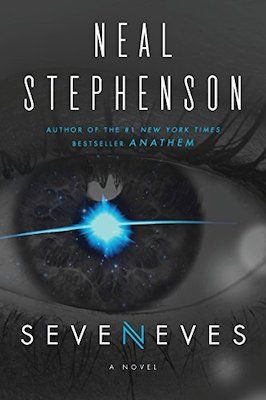
This is my second time reading Seveneves by Neal Stephenson.
I'm a big Neal Stephenson fan, and I've really been enjoying going back and re-reading his books over the years. As with the others, I think I enjoyed this one more the second time.
This book is a monster at almost 900 pages, and thinking back on it, it feels like I read at least three books. And I don't mean that in a bad way – aside from his usual getting-too-much-in-the-weeds stuff with orbital mechanics, I enjoyed all of it and would probably have kept reading if this book was twice as long. This book explores so many interesting concepts about low-earth orbit, orbital mechanics, the logistics of a mass planetary exodus and sustaining life in the harshness of space (and elsewhere!), plus geopolitics, personal drama, heroics, adventure, and tragic demises. Absolutely fantastic.
My only complaint: There was so much cool stuff at the end of the book and I would've loved to see more of that (and perhaps less of some of the earlier stuff). I'm being vague because I don't want to spoil anything, so i'll just say this: If he was to write a whole book based on the last 10% of this book, I'd be very eager to read that as I think it was under-explored compared to the first 90% of the book which he somewhat beat to death.
Oh, my only other complaint: There's some heavy suspension-of-disbelief stuff required for the whole "discrete characteristics of the seven races" thing towards the end of the book. I think he went way too polarizing on that concept, but hey: science fiction, the far future, yadda yadda.
Would I read this a third time? (Does the moon blow up in the first sentence of this book?)
Edge of Tomorrow was such a cool movie: Literary Edition
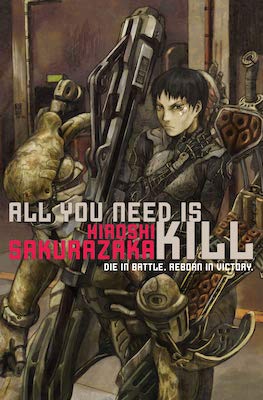
I still remember the first time I watched the movie Edge of Tomorrow starring Tom Cruise and Emily Blunt: I was like, hey, I've never heard of this, it's probably bad, but why not. And it was incredible. Seriously, like one of the best science fiction movies I've ever seen.
Afterwards, in the throes of my enthusiasm, I learned it was based off a Japanese book called All You Need Is Kill by Hiroshi Sakurazaka and translated into English by Alexander O. Smith. So I read that too, and it was also great.
Seven years later, I came back to read it again, and I enjoyed it again. It's light, fun, fast-paced, and has a time-loop mechanic and personal redemption storyline for which I'm a huge sucker.
A nice, funny break
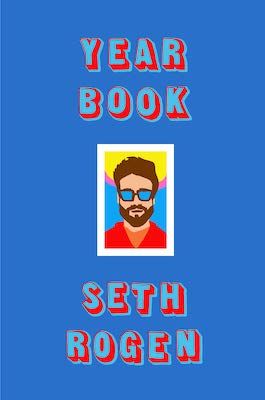
I like reading memoirs by funny people; they're a nice divergence from the normal stuff I read and feels more recreational. This year, I read Yearbook by Seth Rogan. I didn't know much about him before reading this book, but I've seen a bunch of movies that he's acted in or been involved with, so it was really interesting to connect the dots between who he is versus what I've seen him do.
Overall, this was a fun read, and as happens most of the time when I read memoirs, I left this book thinking more highly of him as a person than I did before.
An empathetic surprise
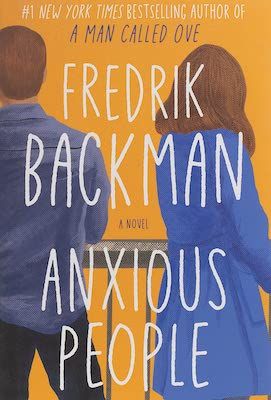
I picked up Anxious People by Fredrik Backman and Neil Smith (translator) because it was on top of some popularity list, and I had heard of the author because of one of his other books called A Man Called Ove. I never read that one, but I recalled my wife liking it, so I figured I'd check his new book out.
Anxious People was really wonderful. It's not exactly the kind of thing I would normally read, but I'm glad I checked it out and would come back to it again. It was an odd (in a good way) mix of humor, seriousness, and the stuff I liked the most was that it was deeply empathetic. While much of this book is goofing around and having some fun, it ultimately explores this idea of how we truly don't know what others are going through, and a lot of times, their behavior doesn't make sense to us unless we can understand what it's like to walk in their shoes.
Oh yeah, I'm coming back for more of this sandy, wormy goodness
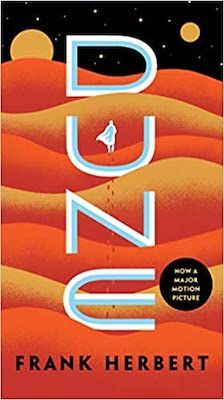
Dune by Frank Herbert is one of the most famous science fiction books of all time, so I'm not going to attempt to tell you why you should or shouldn't read this one, I'll just share a bit about my personal experience with it.
This was my first time reading Dune. I know, I'm super late to the party. I saw the 1984 David Lynch Dune movie a long time ago and I think that put a bit of a... weird... taste in my mouth, so I never prioritized checking out the book.
The new 2021 Dune movie was a major motivation to read this book; I absolutely love being able to read a book and then immediately check out the movie. I didn't time it quite perfectly, but I ended up finishing this book in time to watch the movie before it left its initial release on streaming services.
I enjoyed Dune (the book): it had a lot of the tropes I love from more serious science fiction (somewhat reminding me of books like the Hyperion Cantos by Dan Simmons, with some parts of The Expanse, Arthur C. Clarke, Asimov, Iain Banks – and sure, the order of inspiration is probably reversed on several of these). What really stood out were the depth and layers of this book. Yes, it was great science fiction, but there was clearly a ton of thought and research into the underlying themes of religion, ecology, philosophy, and spiritualism.
From what I read in the afterword by Frank Herbert's son, Frank put something like 4 years of closed-door research into the background of this book, and that really increases its value in my eyes.
I'll probably check out a few more books in this series. I understand that there are something like six books from Frank, and then a bunch more from his son and other collaborators. I've heard that the quality drops off at some point, but as of now, I'm pretty excited to keep going.
Also, I loved the appendixes at the end of the book. It covered a lot of background material (still in narrative form) that wasn't included in the main story. I'd love to have more of this stuff because I felt like there is so much more to learn about from the universe and timeline in which Dune exists. Maybe that's my motivation to check out more books in this series...
And finally: the new 2021 Dune movie was awesome and I'm super excited to see Part II.
A perfect science fiction series? (This is not actually a question)
I won't belabor this: The Expanse by James S.A. Corey (which is a pseudonym for two people) is one of the best and most engaging science fiction series I've ever read, and I've been blissfully enjoying this universe for the last decade.
This year, I read two books in the series (re-reading one out of necessity).
The Expanse Book 7: Persepolis Rising
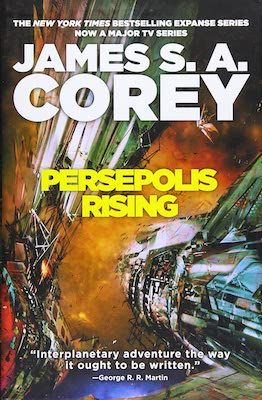
I first read Book 7: Persepolis Rising three years prior, so along with the usual disastrous level of forgetting things over time, it was even trickier since I had just watched three seasons of The Expanse TV series (which is also excellent, but mixed things up in my mind).
When I decided it was finally time to pick up the next book in the series, Book 8: Tiamat's Wrath, I decided to give the synopsis of Book 7 a quick read just to refresh my memory. And then I realized that I remembered next-to-nothing about what happened in Book 7, so I went back and read it a second time.
I'm super glad I went back to re-read this one. It's a good book, and I'm impressed that the authors are comfortable cranking the timeline ahead to provide a bit more realism to the amount of changes that occurred. I think they also could have just said something like "A few years later..." and then let us lean on our suspension of disbelieve a bit more, but hey, good on them for doing something more substantial.
The Expanse Book #8: Tiamat's Wrath
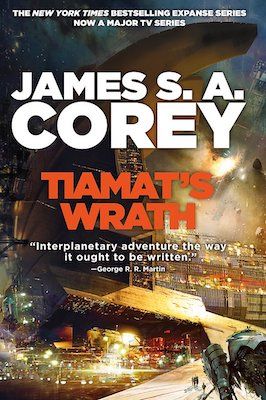
Book 8: Tiamat's Wrath gave a really solid conclusion to the arc started in Book 7, and I was super engaged the whole time. I'm really looking forward to the next book, Book 9: Leviathan Falls, which is the last in this series (ouch).
I'll happily come back and read any books in this series again.
Most relevant (but not necessarily the best)
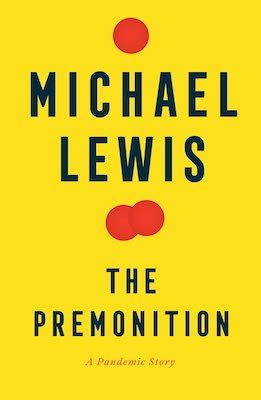
The Premonition: A Pandemic Story by Michael Lewis was pretty good. I learned some new things, but probably wouldn't read it again. (I've read other books about viruses in previous years that I enjoyed much more.)
In a bit of a perverse way, I've been eager for enough time to pass in this age of COVID-19 to allow authors to give us a broader and more objective view of how events played out over the past few years. Michael Lewis is a great writer (The Big Short, Moneyball), so the narrative was fairly engaging, but I felt this take on COVID was just a bit too micro-level for my taste. It focused on the origins of the United State's "modern" (I guess?) pandemic response plan, and how an individual in the California state health system was at the forefront of preparation, plus some interesting details about the details of how unprepared the United States was for a virus of this nature (one of my favorite quotes on that one: "It’s the one thing if I could go back in time and change I would [...] I wish I had bought one hundred thousand swabs. It was not on my radar. It was not a thing I thought would be the limiting factor in life.")
But I didn't get a good big-picture view, which is what I was after, and I suppose this book didn't intend to provide that either. I was hoping for something more along the lines of The Great Influenza by John Barry (although I have my own criticisms of that one), so I'll have to keep waiting a bit longer to get something that seeks to be more globally authoritative.
One thing book did a really good job about highlighting is simply how poorly the United States performed at handling a pandemic of this nature, bungling across all facets: planning, preparation, action, communication, and mitigation. And sure, a bunch of US residents have made it far more difficult than it needed to be, but I can't exclusively fault them for that; better government planning and response would have made the biggest difference overall.
This quote really stuck with me:
"The pandemic had given America’s enemies a clear view of the country’s weakness: its inability to respond to a COVID-like threat."
Please chew on that one for a minute, anti-vaxxers.
If you want to see some of the interesting things I learned from this book, check out the full list of my Kindle notes and highlights.
Sorry, Malcolm
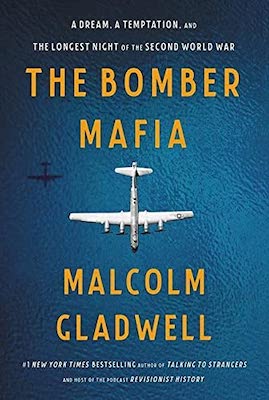
I've read pretty much every Malcolm Gladwell book (most more than once) and have relished listening to his podcast Revisionist History, so let's just say that I'm a Pretty Big Fan. I think he's great storyteller and is especially good at taking a topic and making it really engaging, albeit often at the cost of objectivity.
The Bomber Mafia: A Dream, a Temptation, and the Longest Night of the Second World War by Malcolm Gladwell was the first time I haven't really loved one of his books. It was good, but I don't think I'd read it again. I'm not quite sure why, but I think compared to his other books, this one focuses on just one thing, while his other books explore a whole theme across multiple things.
Did I learn something new? Yes, absolutely, so it was worth the read. And I definitely gained perspective on the human costs of WWII; regardless of how it gets justified, the number of civilian deaths in Japan is staggering. I really don't think we get exposed to those hard facts as Americans: an estimated 500,000-800,000 Japanese civilians died, and this book shines a light on how many of those were from American bombs, napalm, and atomic weapons. It's absolutely staggering.
There's also this fascinating juxtaposition of military methodologies and how technology played into it. The inventor of the Norden Bombsight, for example, made a sophisticated killing tool, but he did so with the vision that precise bombing could hasten victories and minimize collateral damage. There's some very complex and gray-area morality in that one. But compared to its predecessor? They'd simply fly 100 bombs to a general location, drop them all indiscriminately, and maybe one or two would hit the targets for which they were intended. Go ahead and let your mind explore what were the consequences of the other 98.
I listened to The Bomber Mafia on Audible, which I've generally preferred for Malcolm Gladwell books because of the super high production quality (and self-narration) he brings to his audiobooks. He's really kicked it up several notches over his past two books (the other being Talking to Strangers) as he now has his own production studio that also produces his podcasts, but I gotta say, I think it's going a little too far. Don't get me wrong, it's super cool that instead of hearing him narrate a bunch of quotes, we were able to hear the original historical recordings, but with all the ambient background stuff, the sound effects – it kinda felt like I was listening to one of those guided museum tours you listen to on those crappy old Walkman headphones (you know which ones I'm talking about, right?).
Other mentions
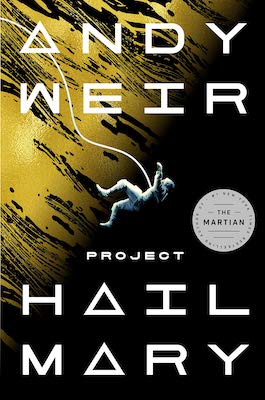
Project Hail Mary by Andy Weir was a fun read. It was more along the lines of his book The Martian – a complex technical adventure helmed by a huge science nerd, with a lot of similarities to books written by John Scalzi. Andy Weir clearly has a lot of intellectual horsepower and loves showing his metaphorical (and literal!) math while the characters in his books work through engineering problems. I don't think many authors can pull this off, but he somehow makes it work. I'd be up for reading this one again.
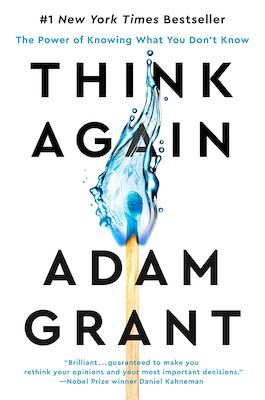
Think Again: The Power of Knowing What You Don't Know by Adam Grant was pretty enjoyable. This book felt very Gladwellian (which to me is a good thing) and was full of interesting anecdotes and studies about learning and leadership, and I genuinely looked forward to reading it every day. I don't think I'd come back to read this one again in the future, but I'd definitely check out more from the author.
--
For more posts like this, you should subscribe to my newsletter (it's free!) or check out my previous reading lists under the tags #year-in-reading and #books. You can also follow me on Goodreads (so I can steal book recommendations from you).